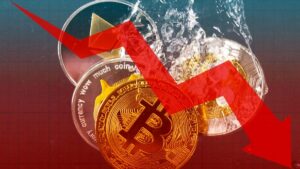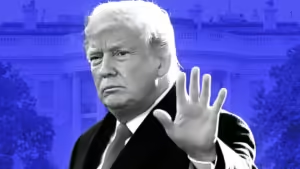U.S. Treasury Warns of Fraud and Scams in NFT Market, Recommends Regulatory Guidance

Quicktake:
- NFTs vulnerable to fraud and scams, says U.S. Treasury.
- Report highlights money laundering risks but finds little terrorist financing use.
- Calls for specific rules and guidance to mitigate risks.
- Lawmakers focused on anti-money laundering and illicit finance.
In a significant development for the cryptocurrency and digital asset industry, the U.S. Treasury Department has released its first risk assessment report focusing on non-fungible tokens (NFTs). The 29-page report underscores the susceptibility of NFTs to fraud and scams, calling for specific rules and guidance to provide clarity and enhance security within the burgeoning market.
The Treasury’s report, published on Wednesday, identifies NFTs as a potential tool for bad actors to launder funds. However, it notes that these digital tokens are rarely used for terrorist financing. This assessment marks a crucial step in understanding and mitigating the risks associated with NFTs, which have seen explosive growth and widespread adoption across various sectors.
“The assessment finds that NFTs are highly susceptible to use in fraud and scams and are subject to theft,” the Treasury stated. “Illicit actors can use NFTs to launder proceeds from predicate crimes, often in combination with other methods to obfuscate the illicit source of proceeds of crime.” The report emphasizes that while there is little evidence of NFTs being used by terrorists, fraudsters have been actively exploiting these digital assets.
The Treasury Department has been actively examining issues related to money laundering and terrorist financing within the cryptocurrency sector. Over the past few years, it has published several reports addressing these concerns. The latest focus on NFTs highlights the growing importance of anti-money laundering (AML) and illicit finance measures in the digital asset space.
U.S. lawmakers, both Democrats and Republicans, have also been increasingly concerned with illicit finance provisions. In the past year, they have been working on various bills and approaches to tackle these issues, reflecting a bipartisan consensus on the need for robust financial regulations in the crypto industry.
The report highlights that while most money laundering and terrorist financing still occurs through traditional fiat currency, the NFT space is not immune to such activities. “Criminals often try to sell or trade stolen or illicitly-gained NFTs quickly to evade discovery, obfuscate the source of NFTs, or complicate the ability of NFT platforms, blockchain analytics companies, and law enforcement to trace the location of the NFTs and any profits from illicit sales,” the Treasury noted.
One significant challenge identified in the report is the lack of customer information requirements on many NFT platforms. This gap allows illicit actors to exploit these platforms, making it difficult for authorities to track and trace illegal activities. The Treasury’s findings underscore the need for enhanced regulatory frameworks to address these vulnerabilities effectively.
In response to these risks, the Treasury recommends that authorities consider implementing specific rules or guidance tailored to NFTs. This approach would help mitigate the potential for fraud and money laundering while fostering a safer and more transparent NFT market.
The report also sheds light on the broader implications of these findings for the cryptocurrency industry. As NFTs continue to gain popularity, the risks associated with their misuse are likely to increase. The Treasury’s call for regulatory clarity aims to preemptively address these issues, ensuring that the growth of the NFT market does not come at the expense of security and integrity.
Moreover, the Treasury’s emphasis on the need for specific NFT regulations aligns with ongoing legislative efforts. Lawmakers have been actively engaged in crafting policies that address the unique challenges posed by digital assets. By focusing on AML and illicit finance, these initiatives aim to protect consumers and the financial system from the risks associated with cryptocurrency and NFTs.
The report’s findings also highlight the importance of collaboration between the public and private sectors. Effective regulation and oversight of the NFT market will require cooperation from NFT platforms, blockchain analytics companies, and law enforcement agencies. Together, these stakeholders can develop and implement measures to prevent fraud, enhance transparency, and ensure the integrity of the digital asset ecosystem.
In conclusion, the U.S. Treasury Department’s risk assessment on NFTs provides a critical analysis of the vulnerabilities and risks associated with these digital assets. By highlighting the potential for fraud and money laundering, the report underscores the need for specific regulatory guidance and enhanced oversight. As the NFT market continues to evolve, proactive measures will be essential to safeguarding its growth and ensuring that it remains a secure and trustworthy component of the broader cryptocurrency landscape. With lawmakers and regulators increasingly focused on these issues, the future of NFTs will likely see more robust protections and clearer guidelines to address the challenges identified in the Treasury’s report.



